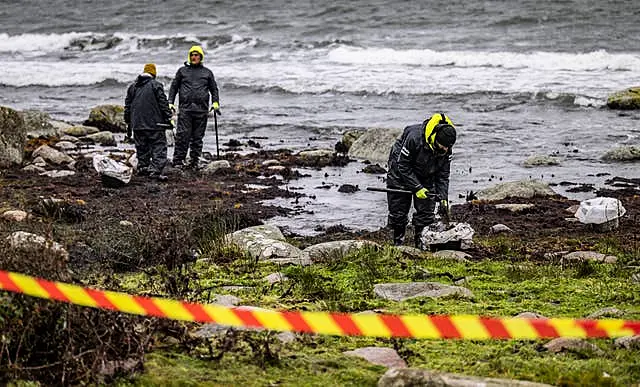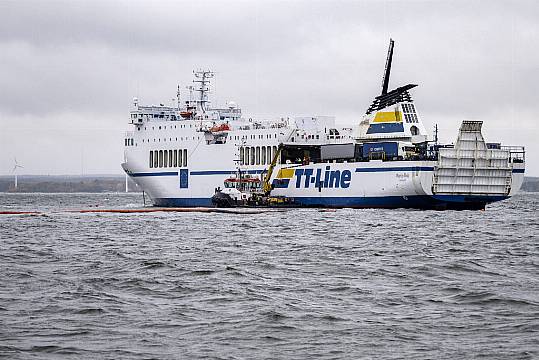A ferry that ran aground off south-eastern Sweden is leaking oil into the Baltic Sea and suffered “extensive damage”, a spokesman for the Swedish coast guard has said.
On October 22, the Marco Polo, operated by TT-Line of Germany, was running between two Swedish ports, Trelleborg and Karlshamn, when it touched ground, sustained damage and started leaking.
It continued under its own power before grounding a second time.
The 75 people on board, both passengers and crew, were quickly evacuated.

The ferry took on water but was not at risk of sinking.
The accident released a slick of fuel which eventually reached the shores near Solvesborg, some 110 kilometres (68 miles) north-east of Malmo, Sweden’s third-largest city.
Swedish media carried photos of birds being partly covered in oil.
Initially, the plan was to pump out the remaining oil from the ferry.
However, that plan was thwarted on Sunday when the ferry slipped off the ground because of severe weather, the Swedish coast guard and the TT-Line company said.
The vessel drifted further out, got stuck for a third time and leaked more oil.
The latest “movement of the vessel did not damage the previously unbreached oil tanks”, TT-Line said.
“We are aware of the impact the incident has caused and we are taking the case very seriously.”

Swedish authorities – including the Swedish Civil Protection Agency – have so far deployed planes, drones, ships and manpower to the site.
Two tugboats were sent to stabilise the ferry.
On Monday, authorities said they were increasing the resources allocated with several ships and more staff after further oil spills were discovered.
“Our first priority is to limit the release from the accident and prevent further releases,” Tobias Bogholt, of the Swedish coast guard, told a press conference.
He could not say how much oil had been spilled following the third grounding.
Valdemar Lindekrantz, who is also with the Swedish coast guard, told Swedish news agency TT that there was “a larger amount of oil in the water after the new grounding. It is very serious”.
About 25 cubic metres of oil and oil waste have been removed so far.

Authorities said the spill currently stretches over five kilometres (three miles) out at sea.
Swedish prosecutors handed down fines to the captain and an officer who was in charge at the time of the grounding, saying they acted recklessly by relying on a faulty GPS.







